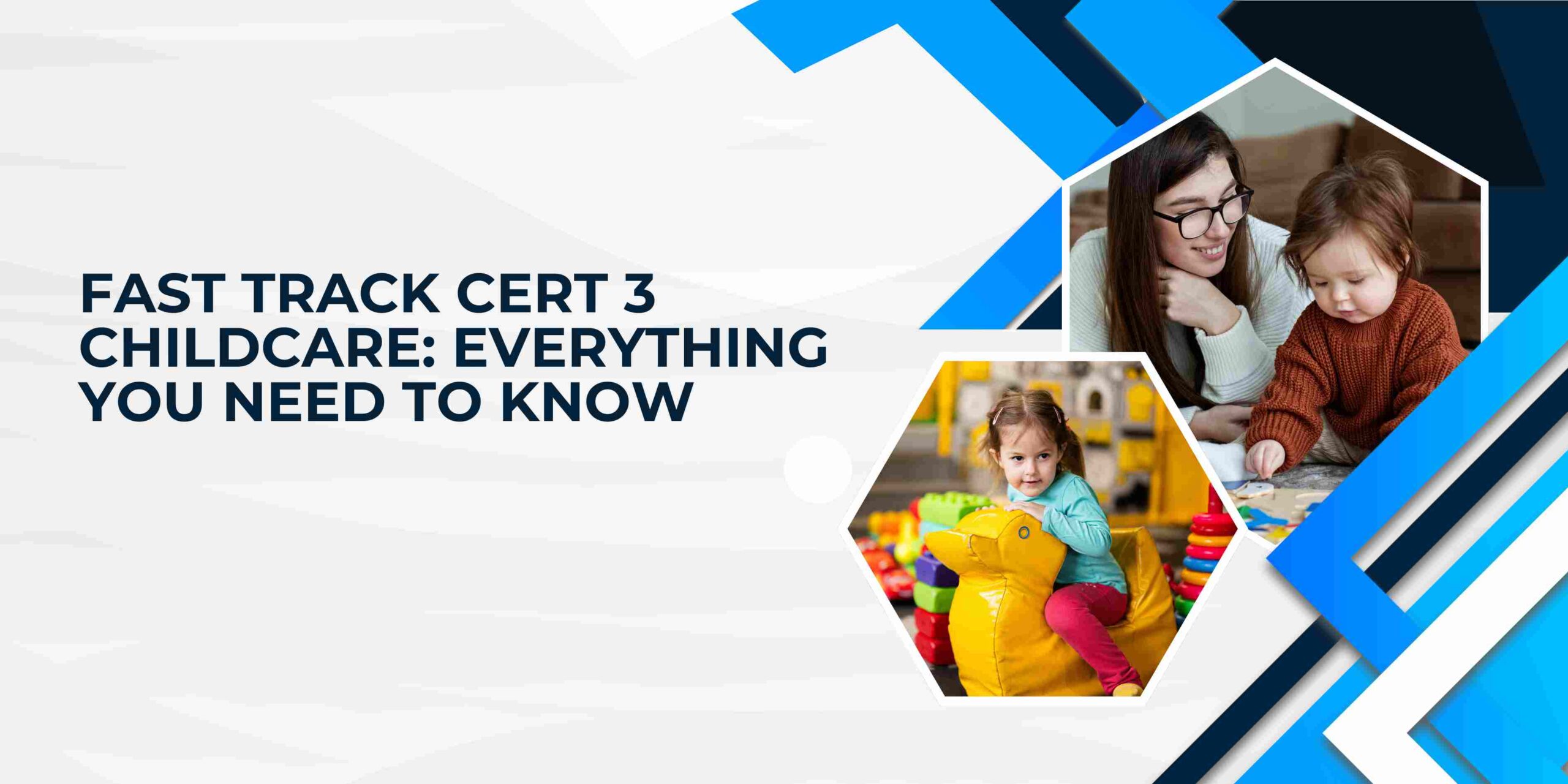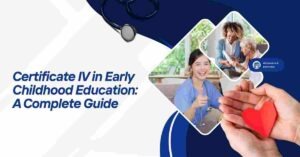In Australia, the demand for qualified childcare professionals is rapidly increasing, creating ample opportunities for individuals looking to enter the early childhood education sector. One of the most effective ways to begin this rewarding career path is by completing a fast-track Certificate III in Early Childhood Education and Care (Cert 3 Childcare). This article provides an in-depth overview of what this course entails, how to fast-track it, its benefits, career opportunities, and more.
What is Cert 3 in Childcare?
The Certificate III in Early Childhood Education and Care is a nationally recognised qualification in Australia that equips individuals with foundational skills to work with children from birth to 5 years of age. It provides essential knowledge about child development, health and safety, learning frameworks, and effective communication with children and parents.
It’s typically considered the minimum qualification required to work in a regulated childcare setting such as long day care centres, family day care, preschools, and after-school care programs.
What Does “Fast Track” Mean?
A fast-track Cert 3 Childcare program allows students to complete their studies more quickly than the standard course duration. While the traditional Certificate III takes 12 to 18 months to complete, fast-track options can often be completed in as little as 6 to 9 months, depending on the provider and learning method (online, in-person, or blended).
Fast-tracking is ideal for:
- Career changers who want to enter the childcare workforce quickly
- People with prior learning or experience in childcare
- Motivated students who can commit more time per week to study
Course Content and Units
While the structure may vary by institution, the Cert 3 in Childcare typically includes around 17 core units and several electives. Fast-track versions cover the same curriculum but are more intensive.
Key core units include:
- CHCECE001 – Develop cultural competence
- CHCECE002 – Ensure the health and safety of children
- CHCECE003 – Provide care for children
- CHCECE004 – Promote and provide healthy food and drinks
- CHCECE005 – Provide care for babies and toddlers
- CHCECE007 – Develop positive and respectful relationships with children
- CHCECE009 – Use an approved learning framework to guide practice
Elective units may include topics on sustainability, emergency first aid, or supporting children with additional needs.
Delivery Modes: Online, In-Class, or Blended
Fast-track Cert 3 Childcare programs are offered in various formats:
- Online: Allows flexibility and self-paced learning. Students must still complete practical placement.
- In-Class: More structured and guided, great for learners who benefit from in-person instruction.
- Blended Learning: A combination of online theory and in-class or workplace-based practical sessions.
Work Placement Requirement
All Cert 3 programs, including fast-track versions, require mandatory work placement, generally around 120 hours. This is a crucial component of the course as it provides real-world experience and helps students apply theoretical knowledge in practice.
Many Registered Training Organisations (RTOs) assist students in securing a placement at an approved childcare facility.
Entry Requirements
Generally, there are no formal entry requirements for the Certificate III in Childcare. However, students must:
- Be at least 18 years old (some providers accept students 16+)
- Pass a Working With Children Check (WWCC)
- Have basic English and literacy skills
Benefits of Fast Tracking
- Quicker Entry to the Workforce: Start earning and gaining experience sooner.
- Cost-Effective: Shorter duration may reduce overall study-related expenses.
- Focused Learning: More immersive and intensive, which helps maintain momentum.
- Boosts Career Progression: You can progress to Certificate IV or a Diploma in Early Childhood sooner.
Career Opportunities After Cert 3 Childcare
Once you complete the Certificate III in Early Childhood Education and Care, a wide array of career roles open up:
- Early Childhood Educator
- Childcare Assistant
- Family Day Care Educator
- Outside School Hours (OSHC) Assistant
- Playgroup Supervisor
- Kindergarten Assistant
Pathways After Completion
Many graduates choose to continue their studies to increase their qualifications and job prospects:
- Certificate IV in School-Based Education Support
- Diploma of Early Childhood Education and Care
- Bachelor of Early Childhood Education (University Pathway)
How to Choose a Fast-Track Program
When selecting a provider for your fast-track Cert 3 in Childcare, consider the following:
- Accreditation: Ensure the RTO is nationally recognised.
- Delivery Mode: Choose the learning format that suits your lifestyle.
- Support Services: Look for providers that offer mentoring, placement assistance, and flexible payment options.
- Cost: Tuition fees vary widely, but government funding or subsidies may be available in many Australian states.
Cost and Funding Options
Course fees for fast-track programs can range from $1,200 to $5,000, depending on the provider, location, and delivery mode. In many cases, eligible students can access:
- Government subsidies (e.g., Smart and Skilled in NSW, Skills First in VIC)
- Interest-free payment plans
- Concessions for concession card holders
Final Thoughts
A fast-track Certificate III in Early Childhood Education and Care is a practical, time-efficient way to start a fulfilling career in Australia’s early learning sector. With the flexibility of online learning, financial support options, and high employability rates, it’s an ideal choice for those ready to make a positive impact in the lives of children.
Whether you’re transitioning careers, upskilling, or following your passion for working with children, this qualification offers the knowledge, hands-on experience, and nationally recognised credentials to help you succeed.
Read more:







